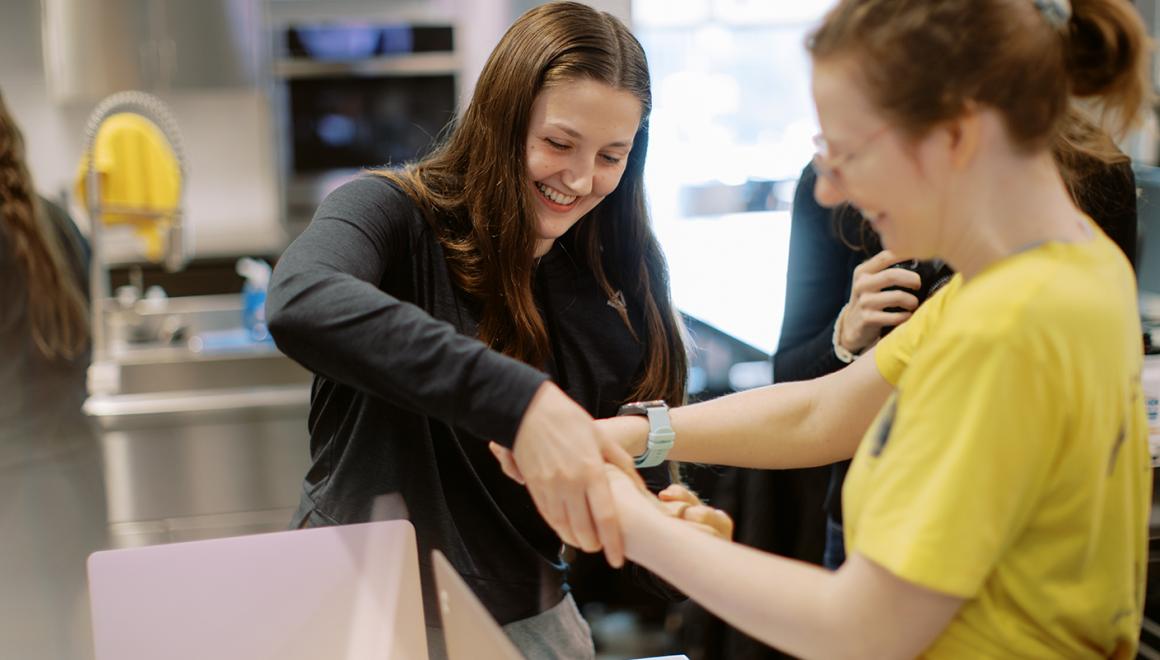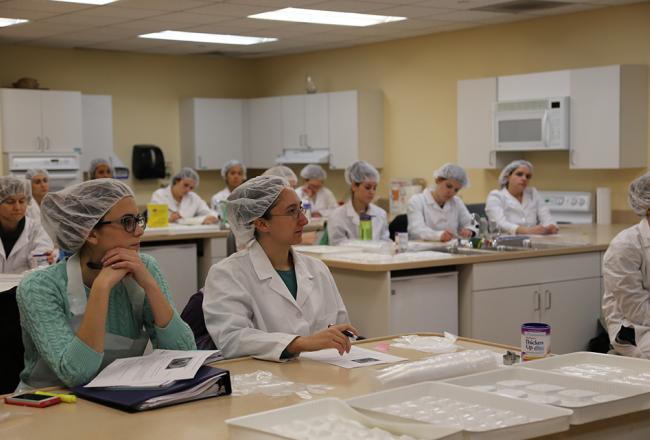Health and Exercise Science + Nutrition and Health Promotion (4+1)

Launch your career in health and wellness
Looking to make your mark in the fast-growing fields of nutrition, fitness, and wellness? Simmons University’s combined Bachelor of Science in Health and Exercise Science and Master of Science in Nutrition and Health Promotion (4+1) gives you the knowledge and skills to lead in these industries.
In this accelerated program, you can earn both your BS and MS in nutrition in just five years.
Along the way, you will:
- Build a strong foundation in nutrition science and health promotion strategies
- Join a diverse, inclusive learning community with small, rigorous classes
- Benefit from faculty mentorship and Boston-area internship connections
As an undergraduate, you’ll work closely with your academic advisor to plan your coursework. By completing prerequisites in your first three years and taking two graduate-level courses in your senior year, you’ll save time and tuition.
BS in Health and Exercise Science
Simmons’ BS in health and exercise science offers a solid foundation in the sciences through hands-on experiences. You’ll have opportunities to:
- Conduct clinical research.
- Work in rehabilitation settings.
- Develop and lead group exercise and physical activity programs.
Service-learning with community organizations and health centers ensures you gain practical, real-world skills.
MS in Nutrition and Health Promotion
Simmons’ master’s degree program offers options for both on-campus and fully-online study.
Courses offer advanced study into the science of nutrition, its role in health promotion, and the social and behavioral factors that influence dietary behavior. You’ll learn about the theory and application of nutritional wellness and health promotion, including how to critically evaluate scientific evidence to inform your practice.
You can customize your plan of study by choosing one of two tracks:
- Applied Nutrition Science: Strengthen your ability to interpret nutrition research and apply it to clinical, community, and practice settings..
- Entrepreneurship: Gain knowledge and skills to develop innovative ventures across nonprofit, for-profit, or government sectors. This track includes courses from the Simmons School of Management and culminates in a business plan tied to your career goals.
Our graduates go on to careers in public health, hospitals, schools, community organizations, private practice, and the food industry. They thrive in roles in nutritional counseling, program management, and community research.
Chart a Course to Become a Dietitian
An MS in Nutrition fulfills the master’s requirement to become a Registered Dietitian Nutritionist. Simmons also offers a Dietetic Internship Program and a Didactic Program in Dietetics Certificate if you wish to pursue this pathway.




